- Home
- Johnny D. Boggs
Doubtful Canon Page 13
Doubtful Canon Read online
Page 13
“Apaches killed Mister Spoon, a kindly gentleman who had guided me to my father’s grave,” Miss Giddings said. “Apaches almost killed me. And they attacked Mister Grey and these children yesterday evening. For all I know, those Indians are still there. Or maybe surrounding us, waiting for their chance.”
The two gunmen shot each other a quick stare, and then both men shrugged.
“Life’s like faro. It’s a gamble.” Ringo pulled a bottle of amber fluid out of the saddlebag. He withdrew the cork, took a swig, and tossed the whiskey to Brocious. Whitey Grey wet his lips, but said nothing.
“How do you know him?” I asked Ringo, pointing at the albino.
“Maybe they met in Detroit,” Ian Spencer Henry offered. “Mister Grey’s been in all the big cities. And my ma….” He didn’t finish.
Laughing so hard, Ringo almost fumbled the bottle Brocious pitched back to him. Once he had recovered and had another drink, he laughed again, wiped his mouth with his jacket sleeve, and shook his head. “Yeah, I bet he has. I first met him in a cantina in Mason County, Texas, some years back. He had just gotten out of prison in Huntsville. When was that, Whitey? ’Seventy-One, right? I was celebrating my twenty-first birthday if I recollect correctly. Rustling, wasn’t it?”
“In the Yuma jail,” Brocious added, “I think it was assault. Who sent you to Detroit? Judge Parker?”
“A misunderstandin’,” the albino muttered. “Demon rum.”
“Uhn-huh.” Ringo took another pull from the bottle and passed it back to Brocious. “Selling rum in the Choctaw Nation, and then busting a bottle over a federal deputy’s face. That’ll earn you some hard time in the Detroit House of Corrections. I was having a drink in a Van Buren parlor house when they arrested him. That’s the last time we ran into each other. Five years ago. That’s about right.”
Ian Spencer Henry scratched his head. “Prison? You mean he’s been in prison?”
“Just about every prison or jail known to man,” Ringo said. “In Texas and Arkansas, I never believed those stories you were telling when in your cups, Grey, but now I’m not so sure. I always thought you were just mad.”
“He gets mad,” Ian Spencer Henry said. “He gets mad a lot.”
“That’s not my meaning,” Ringo said.
My friend pondered this a moment, his eyes darting from Whitey Grey to Dutch Ringo. At last he said: “Oh.”
Ringo caught the bottle again, took a final swallow, returned the cork, and shoved the whiskey back into the leather bag. “Here’s the deal, folks. I’m going to listen to Whitey Grey’s story again. All of us will. If Curly and I decide this story might be true, we’ll join up with you. And we like the split. Five thousand for you. The rest for Curly and me.”
“And the Apaches?” Brocious asked.
“The Apaches don’t get a split.” Ringo laughed at his own joke, shook his head, and told his partner: “My bet’s that those Indians have already lit a shuck. Army patrols are all over chasing those that jumped San Carlos.”
“They’ve hit the cañon twice,” Brocious warned.
“You can back out, Curly,” Ringo said bitterly, his mood turning savage. Dismissing Brocious, Ringo drew a revolver, a Thunderer this time, aiming it at the white-skinned man. “If Curly and I figure that, yeah, you’re just some old reprobate touched in your head, then we’ll leave you be. You can dig for gold, dig for water, or dig your own grave. I don’t care. But, first, Whitey, I want to hear that story.”
“You’ve heard it, Ringy,” the albino said. “Eavesdropped on us a little while ago.”
The gunman nodded. “Yeah. I heard you tell the lady here. Heard you tell it in Mason. And in Van Buren. Curly heard it in Yuma. But this time….” He rested the revolver on his knee, sighted down the barrel. “This time…I want to hear the truth.”
When Grey folded his arms across his chest, Ringo thumbed back the hammer on the double-action .41. “I’d be doing the lady and the kids a favor by killing you, Grey,” he said icily.
With a heavy sigh, the albino sank to his knees, shaking his head. “Happened just like I tol’ y’all,” he said.
“The truth, you ivory-faced cretin,” Brocious snapped. “Dutch here’ll know if you’re lying to us. Dutch always knows a liar.”
The albino muttered an oath, sat back, and shook his head. “Mostly,” he said. “Happened ’most like I said it afore.”
Reluctantly he started again.
We left the station at Franklin. Mister Giddings, old Sam Golden, and me. I volunteered. Was the only hand with enough sand to make the trip across New Mexico, what with Cochise and his bucks on the prod. Mister Giddings, he didn’t like that. Not a bit. Didn’t like me. Didn’t trust me, and he tol’ ’em fellers at the Texas Division how he druther ride with the devil than with ol’ Whitey Grey as his guard. But he didn’t have no choice. The Overland was all but belly-up, Rebs was movin’ through Texas, bluecoat Army was lightin’ out of Texas. He was stuck with me. ’Sides, he did know I was right handy with a six-shooter or rifle. Knowed I could handle myself in a fight.
Yeah, I wanted that gold. Wanted it for my ownself. Thirty thousand dollars? In gold coin? That was temptin’. And it was a long way from Texas to Californy. Mister Giddings knowed that. He wouldn’t let ’em saddlebags, heavy as they was, out of his sight. I couldn’t touch ’em. Nobody could, ’ceptin’ him. And once we come to Mesilla, he up and hired him two other shootists. The Mex and Bruce from Wisconsin. Tol’ Bruce to keep his eyes peeled for Apaches and secesh, but never to take his eyes offen me, neither.
Like I done said afore, we didn’t see much of nothin’ betwixt Mesilla and Stein’s Peak station, and then we seen all that death. Apaches had killed ever’ last soul at the station, run off the stock, put poison in the well. And it happened just like I tol’ this here lady, tol’ these chil’ren. “My word,” Mister Giddings, he says when he’s seein’ all ’em dead folk, and I tells him…“Ain’t no word for it.” And then I tells him…“Smart thing, Mister Giddings, might be to turn back.”
See, I wanted to turn back. Gold or no gold, I didn’t fancy gettin’ myself kilt by no Apaches, and, well, maybe he’d just give up the fight, go back to Texas, see things the way they should be seen. Maybe Mister Giddings would decide that money’d be better suited for him. He said his wife was in the family way. Thought that might change the tune he was singin’, once he thunk on it some. I figgered I might be able to talk some sense into him, but, no, he was one hard-rock customer. He had his orders, he says, says he ain’t turnin’ back. Says we ain’t turnin’ back. Like I say, Mister Giddings had a belly full of gumption.
So we went on. Through the cañon here, and down yonder. Right where we buried Willie Spoon.
That fight happened, too, just like I tol’ it afore. Mostly, anyhows. The Apaches hit us right when we was in the cañon. Shot the Mex and Sam Golden off the box, and I climbed up to get the reins, Apaches yippin’ and shootin’. Air filled with arrows and lead and dust. You seen the cañon. You know how narrow it is. Well, we wrecked. Busted ourselves up pretty good. Bruce got kilt just like I said. And Mister Giddings, he knowed it was hopeless. Knowed we was all done for.
I tells him it wasn’t no such thing. Said we’d get out of here, but maybe I should bury that gold. And he laughed at me. He drawed his pistol, said he’d see me dead afore he ever let me touch the gold. And he run. I started after him, but got into a li’l’ tussle with a Cherry Cow buck. Then I hoofed it to the cañon wall, hobbled as fast as I could, my leg hurt like it was. I’m lookin’ for Mister Giddings, and he comes slidin’ down a little mound, an arrow in his shoulder, his leg bleedin’ somethin’ fierce. He tells me he’s buried the gold.
“The Apaches shall not have it, Mister Grey,” he says. “And nor shall you, you treacherous piece of filth.”
That’s what he says to me. Well, I stare up that hill, and ’neath this juniper I see just a sliver in the rock. Li’l’ cave it is. He’s dropped the bags in there. I ain’t
no big man, but ’tain’t no way I can gets in that hole.
“It’s deep, too.” Mr. Giddings, he’s laughing at me. Reckon he was plumb out of his mind.
Don’t matter none. I couldn’t get up that hill, not with a horde of Cherry Cows after us, and, even if I did, I couldn’t wriggle down in that li’l’ hole in the cañon. Now, it’s gettin’ nigh dark, and I knowed if I can just hold out that long, well, maybe…just maybe…. But the Apaches is comin’ with a mind to finish the fight before the sun goes down, and Mister Giddings, he’s just laughin’. Mad he was. But he wasn’t payin’ no attention to me, howlin’, and I taken my revolver and knocked that pistol out of his hands. Had a mind to kill him, I did, him treatin’ me like dirt, him takin’ my money from me like he done. Only here come the Apaches. Then it strikes me what to do. I shoved Mister Giddings out there, into the open. And while ’em bucks are carvin’ him up, havin’ some fun, tearin’ him to pieces, I hightail it back up the cañon.
The Apaches sent two braves after me. I fetched one to perdiction. Wounded the other. And then hid in the rocks till it come full night. Then I sneaked my way back to the station. Waited Reckon I was ’bout out of my head, too. Then Willie Spoon and ’em freighters come. I joins up with ’em, and we bury the dead. Bury Mister Giddings. His bones anyway.
Now, all this time durin’ the buryin’, I’m lookin’ for that hole, that juniper, but, well, wasn’t nothin’ I could do then. Didn’t have no horse. And there must’ve been practically twenty men hired on with that train. Wasn’t of a mind to share that gold with ’em. Not that many of ’em, and couldn’t trust ’em. And, yeah, there were those Apaches to think ’bout. So it struck me that that gold wasn’t goin’ nowhere, and I just grinned like a fool. John Butterfield, he’d think either the Apaches gots it or it gots buried and the location died with Mister Giddings. That’s what I let ’em Overland boys in Tucson believe.
Figgered I’d come back for it when the Apaches was gone, or at least not so troublesome. Would have come back sooner, maybe, but, well, there was all ’em misunderstandin’s between me and ’em lawdogs here and there.
That’s how it was. And that’s the gospel.
Chapter Fifteen
When Whitey Grey finished his story, Miss Eleora Giddings slapped his face, a savage hit that sounded like a cannon round in the rock house.
“You…!” Trembling with rage, she struck him again, knocking off his hat, and the white-skinned man accepted his punishment. “You murdered my father!”
“Apaches done it,” he said softly.
Another wallop.
“’Twas him or me, and he was bad off. Cherry Cows would’ve kilt both of us. Almost done it anyhow.”
This time she balled both fists and punched his head, let out a terrible groan, stepped back, shaking her stung hands, and sank to her knees. She started to sob, but quickly choked it off, and took a deep breath. She cursed Whitey Grey.
Curly Bill Brocious just laughed. His partner appeared to be deep in contemplation, pondering the albino’s story, showing no concern for the upset young woman. He smoothed his mustache and, his mood now amiable, asked Brocious to share his thoughts.
The gunman took a final glance outside and, turning to face Ringo, shrugged. “Ain’t seen hide nor hair of no Apaches. Cañon looks deserted.”
“Last night’s storm likely took the fight out of them,” Ringo offered.
“Could be.” Brocious pointed at Whitey Grey. “You believe his yarn?”
“It adds up. You?”
Another shrug. “I’ve bet on worse hands. But I don’t get why the kids are here.”
“I do.” Dutch Ringo grinned when the albino and the children looked at him. I had wondered that myself, had toyed with various theories but never really liked anything I had considered.
“The freak says that hole in the cañon was too small for him. He hasn’t shrunk any in twenty years, so he figures a child can wriggle into that pit, get those saddlebags. You kidnap them, Grey?”
The albino snorted, wet his lips, rough fingers tracing the blotches on his cheeks left by Miss Giddings’s hits. His eyes avoided Ian Spencer Henry, Jasmine, and me, and he shuffled his feet and muttered: “Tol’ me they was orphans. But they lied.”
“Runaways?” Brocious shook his head. “I don’t know about this now, Dutch. Their parents…maybe the sheriff…they’ll be combing this territory for those young ’uns.”
“Is that true?” Ringo asked Ian Spencer Henry, who naturally told him everything: how many days we’d been gone from Shakespeare, our adventures along the Southern Pacific tracks and through Valle de las Playas, and, how his father would barely notice he was even missing, that Jasmine’s dad had been killed (he left out the particulars), and that my father had been in an accident that had left his two legs broken.
Where Ian Spencer Henry came up with that lie, I don’t know, but I understood why he had chosen to tell such a stretcher. Out of respect for me. He didn’t want those outlaws to know my father was a drunkard. They could think what they wanted of his own addle-brained father, but Ian Spencer Henry would protect Jasmine Allison and me. His goodwill and loyalty ran deep. We couldn’t have asked for a better partner, or friend.
“I like this here boy, Dutch,” Brocious said. “He can ride with me anytime.”
“I like the girl better.” Ringo nodded at Jasmine. “She doesn’t say a word.”
Brocious shook his head. “Dumb fool girls,” he said, his eyes moving from Jasmine to Miss Giddings. “None of them should ever have left home. This country ain’t for the gentler sex. Respectable women, I mean.”
“I’m all for riding with you, Curly Bill,” Ian Spencer Henry sang out. “We could be famous, get written up by Mister Buntline or Colonel Ingraham. Those are two of my favorite authors. And I figure I’ve got the right name to be a great scout or trapper or bad guy. Two of my names are the same as fast-shooting rifles.”
Brocious ran his fingers through my friend’s hair. “That so. Sakes alive, though, I never heard of an Ian rifle. How’s it compare to the Winchester?”
“Nooooo.” Ian Spencer Henry started to correct Brocious, not catching the gunman’s joke, but Ringo cut him off.
“You still haven’t given me reason to believe the good citizens of Shakespeare haven’t formed a posse and are tracking you down.” His head tilted at me. “There’s no law in Shakespeare, but I know this boy has friends in town. The skinflint at the mercantile seemed to favor the lad when we were getting outfitted. And I don’t want to be mistaken for some child stealer, get caught between an angry, worried father and his kid.”
“You won’t,” my friend assured him. “Besides, Jack here left a letter in the Lady Macbeth Mine to throw any searchers off the trail, someone like Mister Shankin, I reckon. When they find it and read it, they’ll think we’ve run off to El Paso. So that’s where they’ll be looking, if they ever get around to looking. East of Shakespeare. Not west. Not here.”
Upon hearing of this chicanery, Ringo gave me a moment’s consideration. “Smart lad,” he said. “The boys and me can always use a good liar. Look me up when you grow up a few more inches, say in about two or three years.”
“In two or three years,” I said, “you’ll likely be dead.” His face dropped, and Curly Bill Brocious let out a loud howl, but I spun to the killer and told him: “You, too, Curly.” He kept on laughing, even when I said: “Maybe in two or three more hours.”
“By you?” Brocious asked, snorting and bellowing, dabbing his watering eyes with the ends of his bandanna.
“Apaches,” I said. “I’m not sure they’re gone.”
Brooding, Dutch Ringo withdrew his whiskey bottle again, his eyes malevolent, and I felt relieved Curly Bill Brocious found some humor in my remarks. If not, Ringo might have shot me. I’m not sure why I said it, or even if I really thought the Apaches might be lying in wait for us, ready to wipe us out, for what Ringo said had made sense. In all likelihood, the savage storm of the
previous night had driven the Indians away.
“You could be right, kid,” Brocious said. With a final snigger, he walked over to Ringo, helped himself to a drink, corked the bottle, and told his partner, his words evenly spaced and tough: “Braced yourself enough for the day’s work, Dutch. I’d like you sober. Kid could be right. Apaches, the law, Mexican bandits, or the Army. Anything could be waiting for us in that cañon.”
“All right.” Ringo’s voice was just above a whisper. My words, somehow, had unnerved him. That I found strange. A man like Dutch Johnny Ringo had no fear.
Brocious walked over to the albino. “But why three kids, Grey? I still don’t quite savvy that.”
Our former leader looked slightly embarrassed. “Wasn’t sure they’d all come,” he said.
“Story! He’s telling a story!” Ian Spencer Henry said. “He said we all had to come with him. That it was all of us or none of us. Said he’d kill any of us that turned back on him. You’re supposed to tell the truth, Mister Grey. Dutch Ringo will know if you’re fibbing or not.”
“That is the truth,” the white-skinned man said. “Yeah, I threatened ’em. Tried to scare ’em. But I didn’t think they’d all come. But they did.”
“And you’re glad of it,” Ringo said. “Isn’t that right?”
After a long wait, the albino’s head bobbed.
“Tell them why, you miserable mistake of nature.”
When no answer came, Ringo, his despondency having faded, laughed. “He just needs one kid,” he told me, and I knew he meant that as a threat. The man had a vindictive streak wider than a quarter-section. “This is tough country. One of you kids might have gotten killed. Might still get killed. That ivory-faced fool, he was just playing the odds.” He laughed again, a cold, callow laugh. “What do you say, Curly? Should we kill two of these children now? Be less trouble.”
Brocious’s eyes widened. Finally he smiled, but I doubted if he knew for certain if Ringo were serious or not. “Still might have need, Dutch. Like you said, this is dangersome country. It would be a shame if we didn’t have no kid to volunteer to climb into that hole.” He tilted his head toward the albino. “But what about him?”

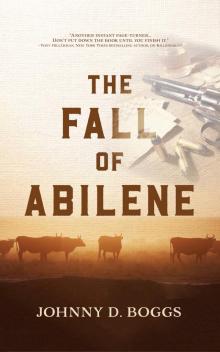 The Fall of Abilene
The Fall of Abilene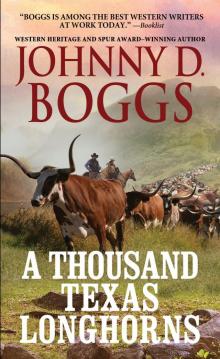 A Thousand Texas Longhorns
A Thousand Texas Longhorns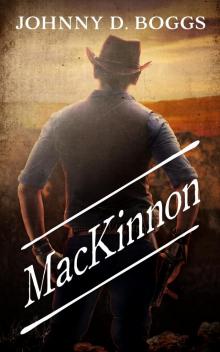 MacKinnon
MacKinnon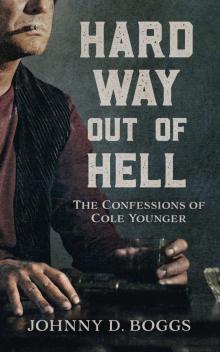 Hard Way Out of Hell
Hard Way Out of Hell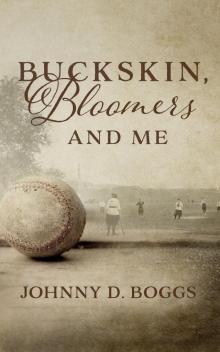 Buckskin, Bloomers, and Me
Buckskin, Bloomers, and Me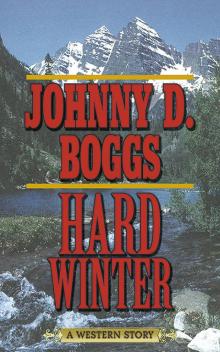 Hard Winter
Hard Winter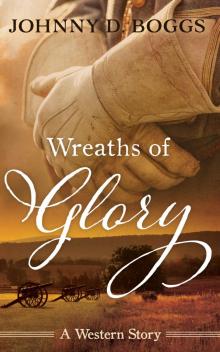 Wreaths of Glory
Wreaths of Glory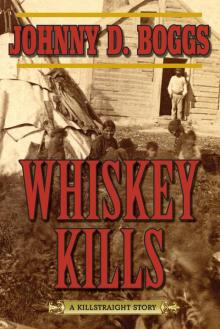 Whiskey Kills
Whiskey Kills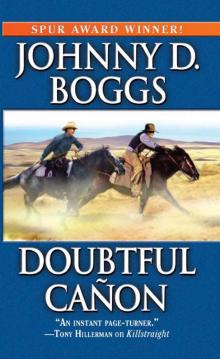 Doubtful Canon
Doubtful Canon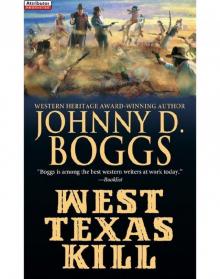 West Texas Kill
West Texas Kill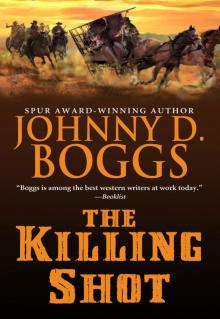 The Killing Shot
The Killing Shot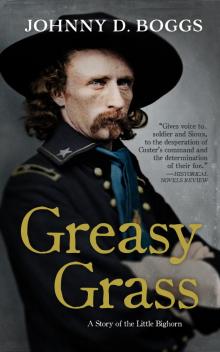 Greasy Grass
Greasy Grass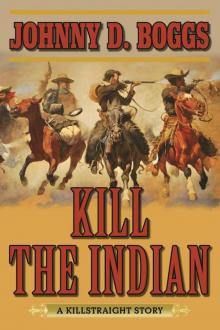 Kill the Indian
Kill the Indian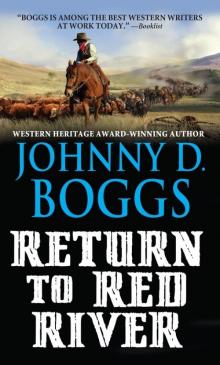 Return to Red River
Return to Red River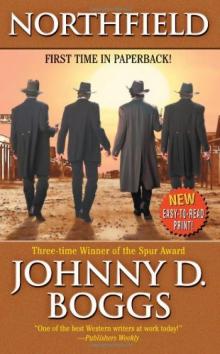 Northfield
Northfield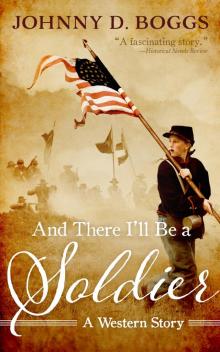 And There I’ll Be a Soldier
And There I’ll Be a Soldier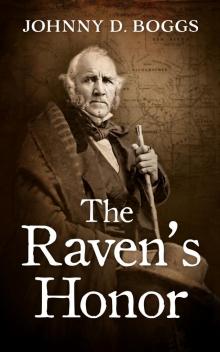 The Raven's Honor
The Raven's Honor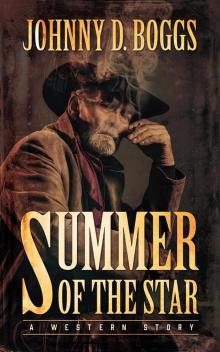 Summer of the Star
Summer of the Star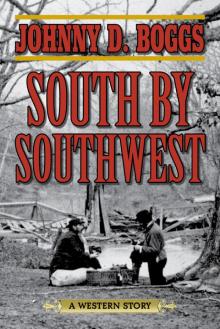 South by Southwest
South by Southwest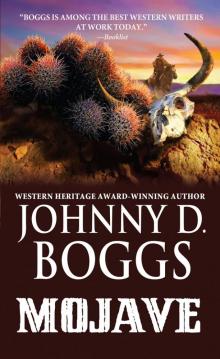 Mojave
Mojave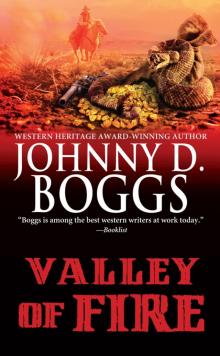 Valley of Fire
Valley of Fire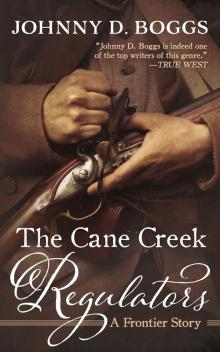 The Cane Creek Regulators
The Cane Creek Regulators